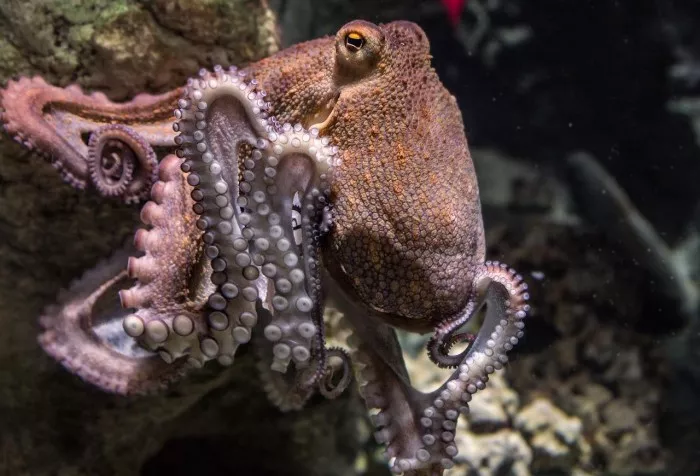Nature is made up of some amazing and intriguing creatures. Among them, perhaps the most intriguing one is octopus. Some people even think they may be aliens. One mystery that has long eluded scientists is the self mutilation of Octopus after mating. For years, scientists have wondered why. Now, after so long, researchers may have finally found the answer.

Release of chemicals
We have long known that female octopus can injure themselves and sometimes even eat themselves when their eggs are close to hatching. Although they are not the only creatures in the wild that die after mating, they have a more terrible way to deal with the process.
Scientists have been trying to find out why Octopus have this behavior for years. Now, a new study published in current biology may provide the answer we've been looking for. The researchers said that female octopus will self mutilate after mating because of chemical changes before and after laying eggs.
A 1977 study found that a set of glands near the octopus's eyes is the mechanism of self destruction. The researchers found that these glands produce steroid hormones in octopus. When the mother lays eggs, these glands become overloaded. It is these steroids that are thought to promote Octopus self mutilation.
Why do Octopus kill themselves after mating
The researchers found that while Octopus mothers lay eggs, there were three independent chemical changes. First, the contents of pregnenolone and progesterone increased. These two hormones are usually associated with the reproduction of many organisms. So it's not surprising to see them here.
Next, they saw a second shift, when Octopus began to produce higher levels of 7-dehydrocholesterol (7-DHC). This is a component of cholesterol, and humans produce it in the process of making cholesterol. However, this may be one of the chemical changes that cause octopus to self mutilate after mating.
7-DHC may be a toxic compound. That's why humans don't keep it in their systems for a long time. The researchers also noted that the optic glands began to produce more components for bile acids. Octopus don't use the same kind of bile acids as humans and other animals, but they do make building blocks of these acids.
The researchers believe that the combination of these chemical changes led to Octopus self mutilation. However, it is unclear why these changes occur or why the octopus's body is designed like this. Z. Yan Wang, an assistant professor at the University of Washington, told live science that this could be a way to protect young octopus. It is reported that octopus is a creature born to kill each other. Therefore, the self mutilation and subsequent death caused by these changes may be a way to naturally eliminate the older generation in order to protect the young octopus.